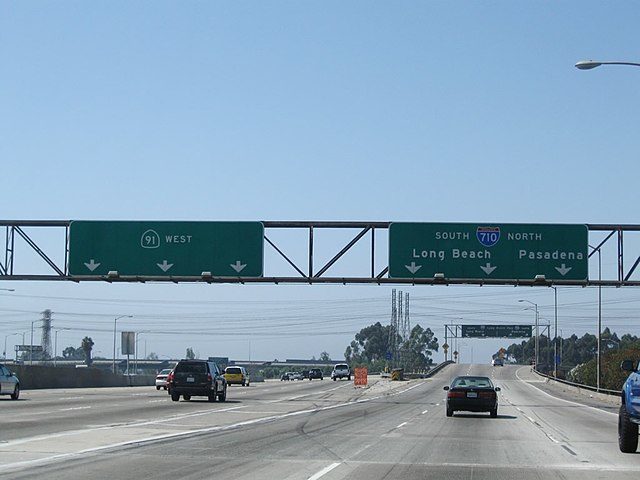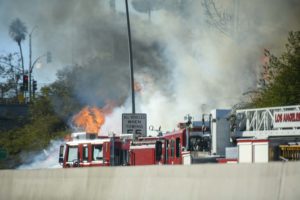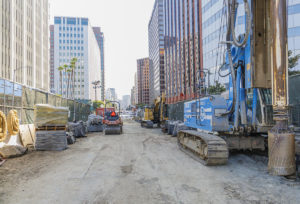The UCLA Institute of Transportation Studies has started to advise the Pasadena City Council on a 50-acre plot of land that was cleared to extend the Interstate 710 freeway and its impact on segregation.
Paul Ong, director of the Luskin School of Public Affairs’ Center for Neighborhood Knowledge, and Chhandara Pech, assistant director of the center, attended the Jan. 17 meeting of the Reconnecting Communities 710 Advisory Group, a committee of experts selected by the city council to advise the project. The UCLA team presented an overview of a study that investigates the effects freeway construction previously had on segregation in Pasadena.
According to the Pasadena City Council’s overview of the redevelopment project, the West Pasadena area was cleared for freeway construction in the 1970s through eminent domain, a constitutional power that allows the government to take private property for public projects. The state seized homes from low-income and minority families to make way for construction that never occurred, leaving behind an incomplete stub at I-710’s northern end.
The Institute of Transportation Studies had previously conducted a 2022 study on behalf of the California Department of Transportation about the impact of historical freeway construction in cities like Pasadena. Its analysis showed that the Interstate 210 freeway, north of I-710, ran predominantly through African American neighborhoods, displacing thousands of families.
Jacob Wasserman, the institute’s research project manager, said a similar story played out at the I-710 stub.
“Cities across the country got a lot of federal support for projects that would remove quote, blight, unquote … areas that were perceived as rundown but were often just areas where a lot of people of color lived or worked,” he said.
Wasserman said the new study will analyze demographic information, housing costs and the movement of people using historical censuses to produce a final report on segregation in Pasadena.
“The legacy of freeway construction lives on today in the health impacts of people who live near there and mobility of people who use the freeway but also who are blocked because of the freeways,” Wasserman said.
In addition to UCLA, Allegra Consulting, Inc., a Pasadena marketing company, will conduct interviews with residents to produce a documentary on the freeway, representatives from the company said at the Jan. 17 meeting. Perkins Eastman, an architectural firm, will also work on the project.
“We are supposed to solicit, amplify and hear the voices of the community to make sure that in this process, the community has a voice … with respect to how to reintegrate this acreage back into the City of Pasadena,” said Danny Parker, an attorney and Pasadena resident who was chosen to chair the advisory group.
UCLA, Allegra Consulting and Perkins Eastman will work on their respective projects throughout the year, while the advisory group will continue meeting until a master plan for the land is completed by the Pasadena City Hall, Parker said.
Everything in the final proposal, from housing and transportation to commercial planning, will be informed by a lens of restorative justice, said Wendy Macías, a senior project manager for the I-710 redevelopment plan.
She added that she encourages members of the public to participate in the process by leaving comments regarding the I-710 stub project during advisory group meetings.
“We have one chance to do this right,” Macías said. “We want to be intentional about … something this large and (with) so many different components.”
Parker also said it’s important for students and other young residents of Pasadena to offer their thoughts.
“The younger one is, the more that (the project) will be a reality in your life and during your lifetime,” he said. “The project will be that much better if we’re hearing from the widest spectrum of people from all sorts of slices and demographics, … whether it be by age or otherwise.”




Comments are closed.